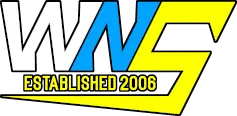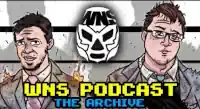20 Years Ago Today WWF Bought WCW
Posted By: Ben Jordan Kerin on Mar 23, 2021March 23, 2001. The day that the world of sports entertainment was shaken to the core when Vincent Kennedy McMahon, owner of the World Wrestling Federation, purchased World Championship Wrestling. Ryan Pratt takes a look back at the events of this historic day.
This day 20 years ago saw the end to the entertaining Monday Night Wars which encapsulated wrestling fans’ imaginations around the world. Six days before Wrestlemania 17, WWF released a press statement which read that they had purchased the WCW brand from Turner Broadcasting System, a division of AOL Time Warner. They had bought the rights to the WCW brand, including their tape library, trademarks, and some contracts of talent and personnel. The WWF’s purchase of WCW ended an 18-year rivalry between the two wrestling corporations, who had gone horn to horn with each other since 1995 when the Monday Night Wars started with the ratings war between WCW’s Nitro and WWF’s Raw. It also signified WWF as the wrestling superpower corporation as they went on to buy out former rivals Extreme Championship Wrestling in 2003, who closed just weeks following WWF’s purchase of WCW.
It is no secret that WCW dominated the early days of the Monday Night Wars. They led the ratings battle for 84 straight weeks against the WWF, due to many elements including the intriguing New World Order faction storyline and the rise of Goldberg. The star power of Ric Flair, Bret Hart, Hulk Hogan, Scott Hall, Kevin Nash and The Ultimate Warrior who had left WWF to join WCW helped bolster Ted Turner’s product. However the rise of the WWF’s Attitude Era from 1997 saw eyes divert to Raw is War, with the McMahon and ‘Stone Cold’ rivalry, D Generation X storylines, and superstars such as The Rock, The Undertaker, and Mick Foley catching the attention of wrestling fans. By 1999, over ten million eyes were watching both Nitro and Raw, and whilst Goldberg was going on to achieve a 173-0 winning streak, January 4th, 1999 saw a crucial turning point. WCW commentator Tony Schiavone, ordered by WCW’s main man on and off-screen Eric Bischoff, said during an episode of Nitro from the Georgia Dome “Fans, if you're even thinking about changing the channel to our competition, do not. We understand that Mick Foley, who wrestled here at one time as Cactus Jack, is gonna win their World title. Ha! That's gonna put some butts in the seats, heh.” Immediately after this, over 600,000 people switched the channel to watch Raw, as Mankind (Foley) won his first-ever WWF Championship by pinning The Rock.
WCW failed to recover from this and suffered years of losses in revenue. In 2000, the Atlanta-based company lost over $60 million as their profits plummeted due to lower attendance numbers, low pay-per-view buy rates, expensive contracts they had to pay, and many other factors.
Ted Turner resigned from running the company by then, and strange, crazy booking decisions from Vince Russo and co-sided the fans against the company as they became disillusioned with the product, as WCW’s programming was canceled by early 2001. Fusient Media Ventures, led by Eric Bischoff, attempted to buy the company, but failed. WCW’s assets were purchased by Vince McMahon for just $3million at first. The bigger stars of WCW such as Flair, Hogan, Nash, Sting, Goldberg and Hall were still contracted to AOL Time Werner, who had to pay many wrestlers for years to come. TNT did allow a final Nitro show to air from Panama City Beach, Florida, which had been scheduled for the following Monday on March 26. Vince McMahon opened the last-ever episode of Nitro with a simulcast with Raw is War, which aired from Cleveland, Ohio. After the main event of Nitro with Sting defeating Ric Flair, McMahon appeared on Raw is War to close Nitro and to declare victory over WCW. Shane McMahon then appeared on Nitro, declaring that it was actually he who had bought WCW. This initiated the Invasion angle that would have Shane leading the WCW invasion of the WWF, which lasted from March to November 2001 and marked the end of WCW as a brand.
If WCW and ECW would have carried on as individual companies, what would have happened? If the big stars of WCW came over to the WWF in 2001, what would have happened? If WCW continued to dominate the Monday Night Wars, what would have happened? There are so many unanswered questions and ‘What if?’ moments during a period that rejuvenated wrestling and sports entertainment. The WWF buying WCW 20 years ago to this day changed the landscape of wrestling, forever.
Ryan Pratt is a feature writer for WNS, looking back at some of the most memorable events and moments in pro-wrestling history. You can find his work on WNS under the hashtag #TDIWH.
Thank you for reading.
Mr. McMahon announces on WCW television he has purchased his rival.
⚡ Explore WNS
Jump To Comments

Popular Tags
Popular Articles

Become WNS Member

Member Login

Edit Profile

Blocked Users

LeaderBoard

Donate to WNS

Logoff


📣 WNS Member Discussion
⚡ Events
WrestleMania 41: Night Two
Allegiant Stadium, Las Vegas, Nevada
Apr. 20th at 8:00 PM
Airing on TBA
Dark Side of the Ring Season 6 Episode 3 - Superstar Billy Graham
N/A
Apr. 22nd at 8:00 PM
Airing on Vice TV



















Leave a Comment ()